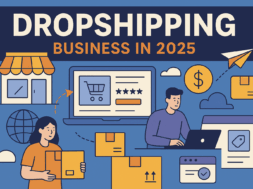Blogging and Content Creation in IT Education: A Complete Guide
In today’s digital world, education is no longer confined to classrooms. With the rise of EdTech and the demand for flexible learning, blogging and content creation have become powerful tools for sharing IT knowledge. From tutorials and coding guides to educational tech reviews, content creation helps IT graduates and educators build influence, create income streams, and empower learners globally.
Why IT Graduates Should Start a Blog or YouTube Channel
Starting a blog or YouTube channel offers IT graduates an opportunity to showcase expertise, build an online portfolio, and connect with a wide audience. It enhances career prospects, opens freelance opportunities, and provides a platform to share innovative solutions. Beyond career growth, content creation can also generate passive income through ads, sponsorships, and affiliate programs.
Popular Niches in IT Education Blogging
Programming and Coding Tutorials
Step-by-step coding lessons in Python, Java, HTML, or CSS are highly demanded by beginners and students.
Tech Reviews for Students and Teachers
Reviewing laptops, software, or EdTech tools helps educators and learners make better tech decisions.
EdTech Tools and Classroom Guides
Guides on using Google Classroom, Moodle, Kahoot, or Microsoft Teams are valuable for teachers adapting to digital classrooms.
Career Advice for IT Graduates
Sharing tips on certifications, freelancing, and career paths helps young graduates transition into the workforce.
Digital Literacy and Online Safety
Content on cybersecurity basics, safe internet use, and digital skills training appeals to both parents and students.
How to Choose the Right Platform for Content Creation
Blogging Platforms (WordPress, Blogger, Medium, Substack)
WordPress is ideal for full-featured blogs, Medium is best for quick publishing, and Substack works well for newsletters.
Video Platforms (YouTube, TikTok, Instagram)
YouTube is the most popular for tutorials, while TikTok and Instagram help with short, engaging educational content.
Step-by-Step Guide to Starting a Blog in IT Education
Identify Your Niche and Target Audience
Decide whether you want to focus on coding tutorials, classroom guides, or career advice.
Set Up Domain, Hosting, and Design
Choose a domain name, secure hosting, and design a professional blog layout.
Install SEO and Analytics Tools
Set up Yoast SEO, Google Analytics, and Search Console to optimize content and track performance.
Publish and Promote Your First Post
Write your first blog post, optimize it with keywords, and share it across LinkedIn, Facebook, and Twitter/X.
Creating High-Quality IT Tutorials and How-To Guides
The key to success in IT education blogging is clarity. Use simple language, visuals, screenshots, and video demonstrations. Tools like Canva, Camtasia, or OBS Studio make tutorials engaging and easy to follow.
Monetization Strategies for IT Education Content
Ads and Affiliate Marketing
Use Google AdSense for ads and join affiliate programs like Amazon Associates to earn commissions.
Sponsorships and Brand Collaborations
Partner with EdTech companies for sponsored posts, product reviews, or software tutorials.
Memberships and Patreon
Offer exclusive guides, coding projects, or one-on-one mentorship through platforms like Patreon.
How to Grow Your Blog or Channel Using SEO
Keyword research, link building, and consistent publishing are essential for growth. On YouTube, focus on video titles, thumbnails, and descriptions optimized for search. Guest posting on other IT blogs also drives traffic.
Content Marketing Strategies for IT Educators
Plan a content calendar, promote posts on LinkedIn and Facebook groups, and repurpose content into videos or e-books. Email newsletters can help build a loyal audience.
Building Authority and Becoming an IT Thought Leader
Share insights at webinars, collaborate with EdTech startups, and publish case studies to establish credibility. Thought leadership attracts both students and professional opportunities.
Challenges in IT Blogging and How to Overcome Them
Many IT bloggers struggle with consistency, competition, and monetization. The solution is to focus on a clear niche, stay updated with tech trends, and diversify income streams to sustain growth.
Future Trends in Blogging and Educational Content Creation
The future of IT education blogging is moving towards AI-driven learning tools, interactive content, and micro-learning platforms. Podcasts, short-form tutorials, and gamified learning will shape the next wave of educational content.
Conclusion
Blogging and content creation in IT education present a golden opportunity for IT graduates and educators to share knowledge, build authority, and generate income. By choosing the right niche, leveraging SEO, and staying consistent, you can establish yourself as a trusted voice in IT education. Start small, be consistent, and watch your influence grow.
















